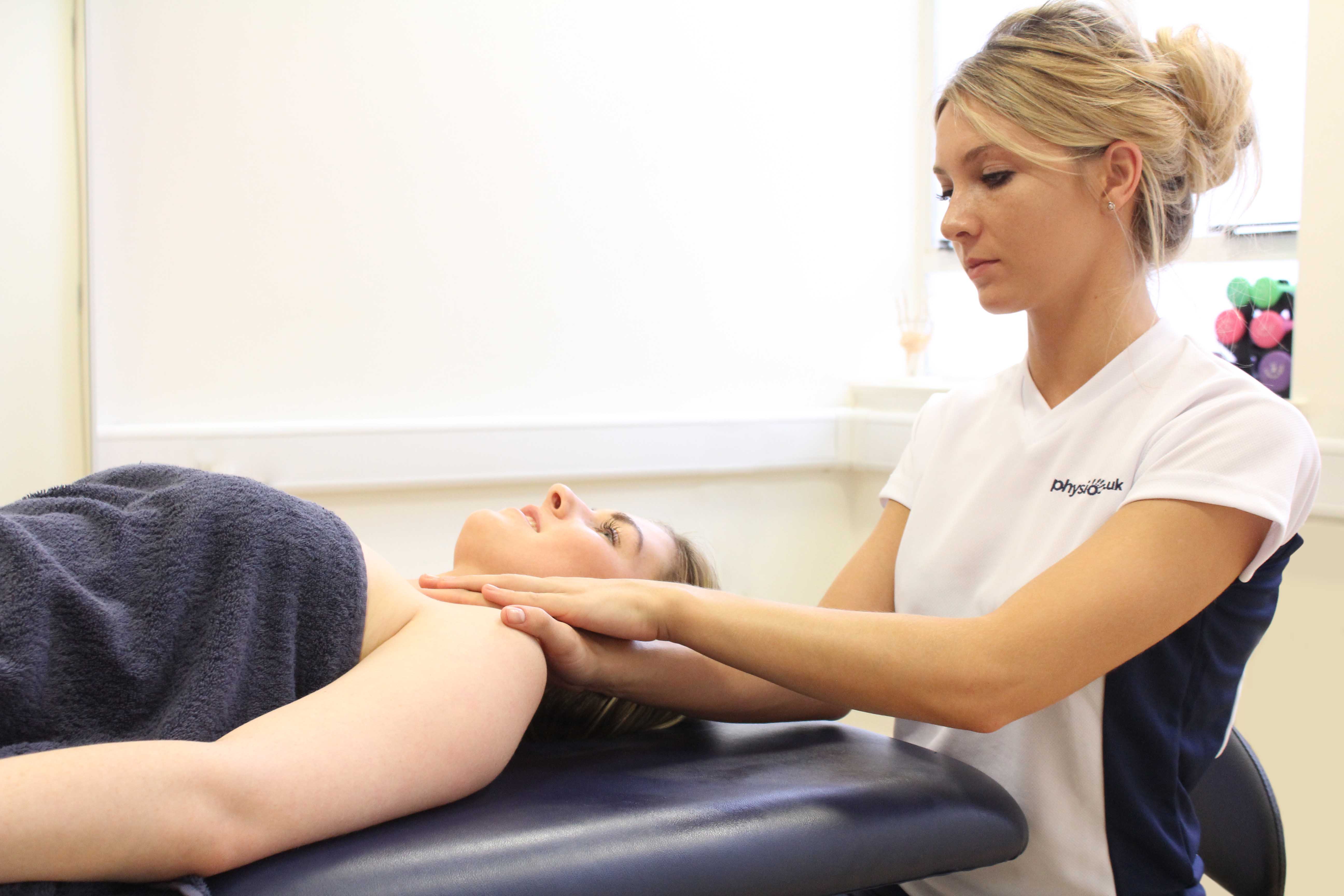The glenohumeral joint where the head of humerus in your upper arm meets the glenoid fossa that is your shoulder is the most versatile joint in the body. It has an enormous range of movement in multiple directions, however, this makes it vulnerable to instability. The structure of the shoulder consists of the adjoining bones, held together by connective cartilage or ligamentous tissues and stabilised by overlapping bands of muscle.
Because of the multiple overlapping structures that hold the shoulder in place it can be difficult to identify the specific cause of instability. If surgical intervention is approved it may only be when the tissues are closely examined that an exact cause is found. Anterior inferior capsular shift describes a subluxation of the head of humerus from the shoulder socket. Specifically the action of it dropping lower and moving forwards from its normal position. This can impinge the surrounding structures causing pain, reduce functional strength or movement and raise the risk of dislocation.
The cause of shoulder instability can be broadly divided into traumatic and atraumatic causes. Traumatic instability is caused by direct traumatic impacts or mechanical overstretching that leads to tissue laxity or injury. Atraumatic instability arises from normal wear and tear, bone deformities, disease or repetitive strain. If the underlying cause cannot be addressed adequately through normal physiotherapy alone then surgical intervention may be recommended.
 Above: Soft tissue massage of the anterior aspect of the shoulder capsule
Above: Soft tissue massage of the anterior aspect of the shoulder capsuleSurgical procedure for Anterior Inferior Capsular Shift.
Anterior Inferior Capsular Shift can be treated surgically via detachment of one of the rotator cuff muscles responsible for stabilising the joint. For this kind of anterior inferior shift the muscle Subscapularis is operated on, with a large incision, relocation and reattachment along the border connecting to the glenoid fossa. This creates greater upward lift and retraction from the contracting action of the Subscapularis muscle. With focused rehabilitation of the rotator cuff muscles, focusing on strengthening Subscapularis, greater shoulder stability can be achieved.
Physiotherapy following Anterior Inferior Capsular Shift Surgery.
Physiotherapy rehabilitation post-surgery will be carried out at one of our clinics by an experienced musculoskeletal physiotherapist. The focus of care will change over the course of treatment to reflect your stage of healing. It will also be progressive, with home exercise plans to carry out between therapy session, ensuring you the fullest possible recovery. Although your treatment will be tailored specifically to your clinical needs and physical ability, the following is a rough guide to what you can expect;
Weeks 1-3
During the first 3 weeks following capsular surgery, it is essential to manage acute symptoms to minimise post-operative complications and allow for optimal healing. Early mobilisation will commence as well as basic stability exercises for your shoulder. Treatment will include:
- Pain management
- Wound management
- Cryotherapy
- Electrotherapy
- Postural education
- Scapular stability
- Pendular exercises
- Passive and active assisted range of movement exercises
- Elbow, wrist and hand exercises to prevent stiffness and atrophy
- Sling mobility
- Home exercises
- Advice and education
Weeks 4-6
Following 3 weeks of rehabilitation following capsular surgery, Physio.co.uk will now focus on mobilising your shoulder to prevent stiffness and contractures as well as begin strengthening work of the shoulder musculature. You will be advised to stop wearing your sling and progress with a more intense physiotherapy programme. Physio.co.uk will direct treatment towards attaining functional and personal goals. Treatment will include:
- Active, passive and active assisted range of movement exercises
- Scapular stabilising exercises through range
- Rotator cuff strengthening
- Shoulder strengthening
- Joint mobilisation
- Soft tissue release
- Capsule stretching
- Proprioceptive training
Weeks 7-12
After 6 weeks of physiotherapy following capsular surgery, Physio.co.uk will intensify your programme focussing on a continuation and progression of exercises. Strengthening throughout range will provide greater stability to your shoulder and muscular endurance helping to fight fatigue. Our target will be to attain full range of accurate biomechanical movement and integrate sport specific exercises into the regime, if appropriate. Treatment will include:
- Range of movement exercises to achieve full range
- Joint mobilisation
- Soft tissue release
- Scapular stabilising towards outer range of shoulder movement
- Shoulder strengthening
- Proprioceptive and perturbation exercises
- Muscular endurance
- Begin sport specific exercises
- Encourage functional activities
Weeks 12+
Following 12 weeks of intense physiotherapy with Physio.co.uk, your shoulder will have regained full movement, a substantial increase in strength and a significant reduction in pain. Muscular endurance and control will have returned to normal allowing you to participate without hesitation in any sport or heavy occupation activities. Focus from here is on attaining complete functional independence and the achievement of personal goals. Physio.co.uk will provide a comprehensive long term rehabilitation programme so that you are able to return to your previous level of function. Treatment will focus on:
- Advanced strengthening
- Achieve full range of movement and strength
- Advanced proprioceptive exercises
- Sport specific exercises with a focus on returning to sport
- Functional training
- Advice on long term management
Summary.
Anterior inferior capsular shift surgery is an effective treatment when more conservative stretch or strengthening exercises are unable to sufficiently correct misalignment. Subsequent physiotherapy treatment is an integral part of the healing process to ensure you achieve the best functional recovery.
We employ experienced musculoskeletal physiotherapists who can treat you with a range of therapeutic techniques to match your personal clinical needs. If you would like to know more about how physiotherapy can help rehabilitate you following anterior inferior capsular shift surgery, please contact us via email at office@physio.co.uk or phone us on 0330 088 7800.

 0330 088 7800
0330 088 7800

































